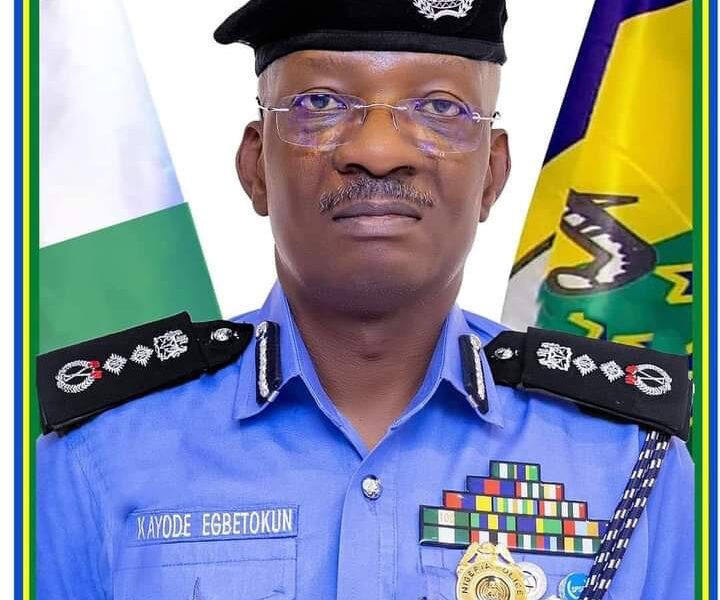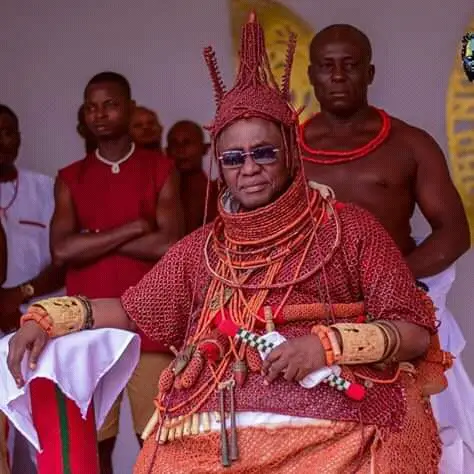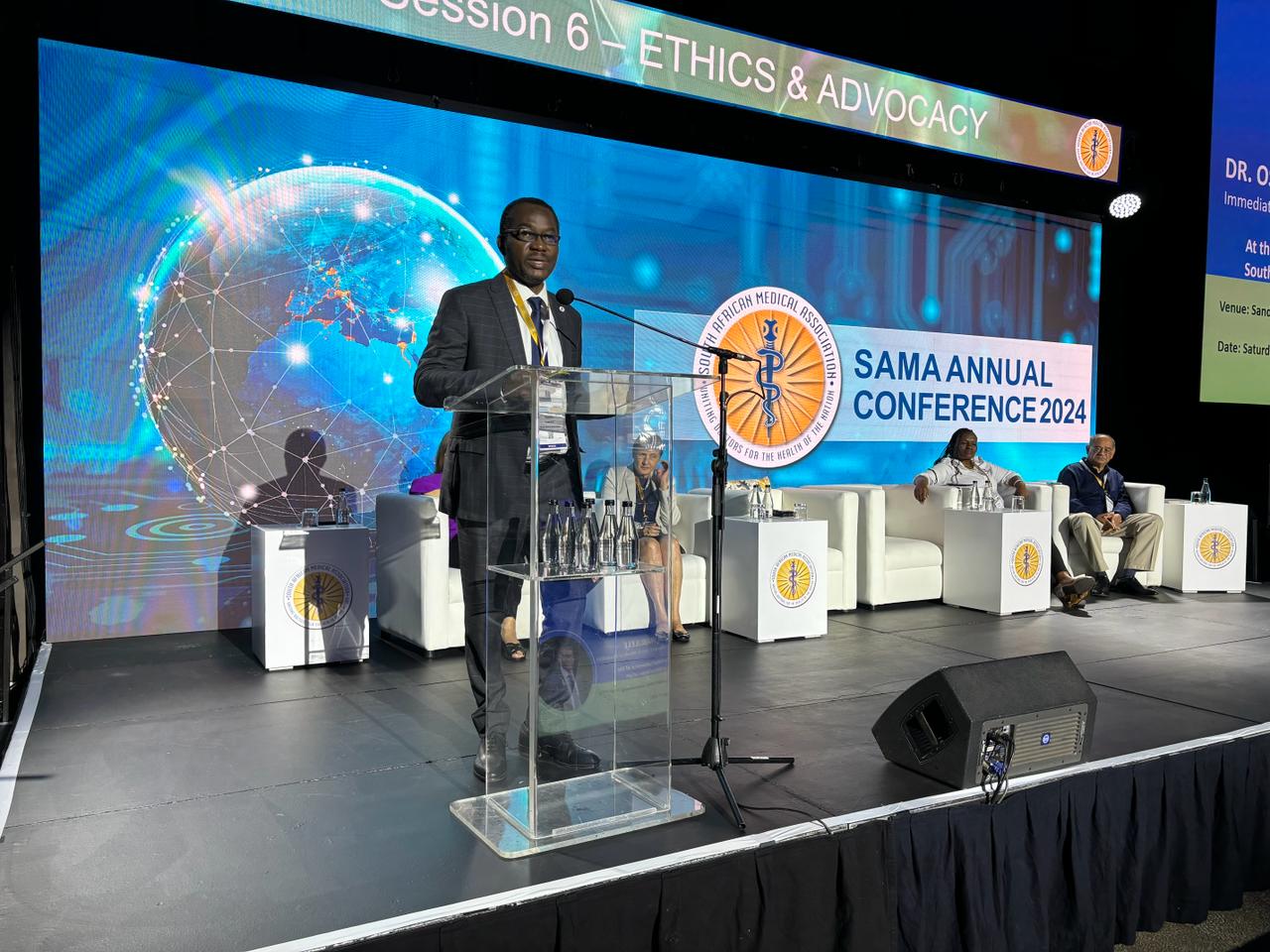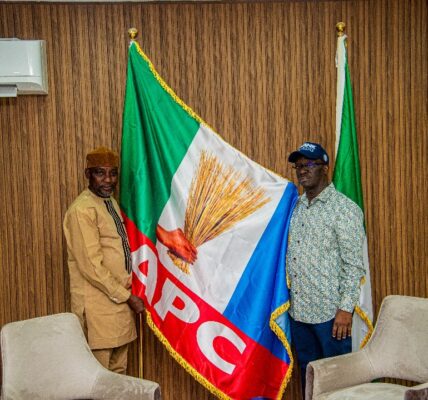Eben Enasco
The third stanza of Nigeria’s national anthem envisions a nation “where no man is oppressed” and where “peace and plenty” reign.
Amidst the future possibility, however, the country faces numerous security challenges, including oppression, militant Islamist groups, organized crime, farmer-herder conflicts, and piracy.
To address these concerns, President Bola Tinubu in his resumption to the office replaced Inspector General of Police Usman Baba with Deputy Inspector General of Police Kayode Egbetokun, in June 2023.
This move, according to President Tinubu, aims to bring new leadership and strategies to tackle Nigeria’s security woes especially police integrity, where effective leadership and strategic reforms are crucial to addressing these challenges.
The change in police leadership was hailed and seen by many as a step towards improving security, despite more comprehensive solutions being needed to achieve the vision of a peaceful and prosperous Nigeria.
This change came after numerous complaints about the police’s poor public operations in Nigeria, which has become a major threat to upholding the third stanza of the national anthem.
Usman Baba was initially appointed by former President Muhammadu Buhari in April 2021.
However, his tenure was marked by criticism over the police force’s effectiveness.
Kayode Egbetokun’s appointment aims to revitalize the police and improve national security as the country witnessed lopsided activities and corruption claims during Usman Baba’s era.
Notably, President Tinubu directed Egbetokun to serve in an acting capacity until his confirmation, adhering to Nigeria’s constitutional requirements.
The Nigeria Police Force clarified that Egbetokun’s term is a standard four-year appointment, as stipulated by law.
Kayode Egbetokun, is a 60-year-old Nigerian police officer who is the current 22nd Inspector General of Police.
This leadership change is part of President Tinubu’s comprehensive security overhaul, perhaps to free the oppressed.
In addition to replacing the Inspector General of Police, Tinubu also relieved the service chiefs of the army, air force, and navy of their appointments, announcing new replacements.
By prioritizing security, President Tinubu aims to restore confidence in Nigeria’s law enforcement and military institutions..
Over one year down the line, police operations have stirred a serious doubt with a series of its police operations being questioned as it has become a clear indication of many being oppressed.
In his days in office, the protesting groups against bad governance, the political groups except, the All Progressive Congress Party, APC, and the Oppressed in the society all pointing accusing fingers over the IGP’S position.
It suffices to say that, even Journalists, have suffered similar fingers accusing faith in the IGP Egbetokun led police.
Multiple reports have recorded that in the last six months, more than 24 Nigerian journalists have faced a form of harassment while carrying out their constitutional duties.
Officers of the Nigerian Police Force NPF, under the leadership of the Inspector General, Kayode Egbetokun, were the most prominent perpetrators, accounting for nearly half of the verified cases of harassment and oppression.
The attacks range from arbitrary arrests, detention and invitations for no genuine reason.
In many cases, the police invoke the Cybercrimes Act, which security agencies, particularly the police, sometimes instigated by influential people within and outside the government, have used to clamp down on journalists and activists despite its recent amendment.
In February, the National Assembly amended sections of the law after the ECOWAS court declared them inconsistent with Nigeria’s obligation under Article 1 of the African Charter on Human and Peoples Rights and best practices.
Section 24 of the 2015 law, used to prosecute citizens for “insulting” or “stalking” public officials, has been amended in the updated version – the Cybercrimes Act 2024.
The amendment better clarifies the offence the provision is aimed at as computer-based messages that are pornographic or knowingly false. Yet, the police have continued to use it to harass journalists.
The police have been involved in at least 11 recorded attacks on journalists this year, according to Press Attack Tracker, a project of the Centre for Journalism Innovation and Development CJID.
The organisation has verified and recorded at least 24 cases of attacks of various forms on journalists carrying out their constitutional duties as guaranteed by section 22 of the Nigerian constitution.
Elsewhere, some civil society organisations CSOs, have criticised Kayode Egbetokun, inspector-
general of police IGP, over the withdrawal of officers from the Kano Public Complaints and Anti-corruption Commission.
Muhuyi Magaji, the commission’s chairman, described the withdrawal of the police officers as a case of corruption fighting back.
The withdrawal, according to the CSOs reportedly follows investigations into multi-billion naira corruption allegations against the national chairman of the ruling All Progressives Congress APC, Abdullahi Ganduje, raising serious concerns about the politicisation of law enforcement agencies like the police under the incumbent IGP.
For the Edo election where the police operatives were expected to pass the integrity test, and widely expected to be a judgment game for IGP Kayode Egbetokun but the only judgment that can be derived from the game is that nobody knows where the police were going, until what is now seeing as it’s involvement in the coalition of election results where they were seriously accused.
In fairness, IGP’s Police operations put on a polar opposite performance of what happened on September 21, Gubernatorial election which probably just hammered home the point that his police force has no identity.
In the September Gubernatorial Election in Edo State, the Edo State Governor and leader of the Peoples Democratic Party, Godwin Obaseki, hinted that the PDP might not sign the Peace Accord on Thursday ahead of the September 21 governorship poll.
Obaseki alleged that the Nigeria Police, under IGP, Egbetokun responsible for enforcing the accord, had shown through their actions that they were acting in the interest of the All Progressives Congress and waging war against the PDP.
The governor made this comment when he received the Chairman of the National Peace Committee, former military Head of State, Gen. Abdulsalami Abubakar, during a courtesy visit to the Government House in Benin City, the Edo State capital, ahead of the signing of the Peace Accord on September 12, 2024.
In a statement he personally signed on September 10, Obaseki noted that since the commencement of the electioneering process in the state, the actions of the police had shown one-sidedness.
During this period, some political figures and civilians in the state were arrested and taken to Abuja undermining the constitutional capacity to try a matter within the jurisdiction where it happened.
This is as the Chairman of the Peoples Democratic Party PDP, in Edo State, Tony Aziegbemi, and the Inspector General of Police, Kayode Egbetokun were locked in hot exchange at a stakeholders meeting organised by Independent National Electoral Commission INEC in Benin City.
Temper flared when Aziegbemi accused the police chief of bias.
He said the state had been peaceful until a police officer, Onu Akor, was killed at the Benin Airport on July 18.
Responding, the IGP, Kayode Egbetokun said the PDP chairman accuses the IG of being partisan because he is bent on unraveling the killing of a police officer during the airport saga at the Benin Airport.
He added that, “If you hold the opinion that the IG is partisan for going after the killer of the policeman, I think you will remain with that opinion forever.”
In another episode of the police that has caught the society on offside, the Rivers State Governor, Siminalayi Fubara said he stormed the Rivers State Independent Electoral Commission, RSIEC, at 1 AM on Friday, to stop the Rivers State Police Command from taking over the premises.
A footage showed the governor in the company of his team, entering the premises of the RSIEC, while some men were seen alleging that the policemen were attempting to scale through the gates and strong room of the commission to allegedly cart away sensitive electoral materials meant for the conduct of Saturday’s local government election in the state
In a statement by the Rivers State Police Command on Wednesday, Spokesperson, SP Grace Iringe-Koko titled ‘Proposed October 5th, 2024 Local Government Chairman Election, said the police received a restraining order preventing them from providing security during the LGA elections.
However, Governor Fubara said the election has to be held on Saturday to comply with the three months of grace given by the Federal Government to begin the implementation of the Supreme Court judgement on local government autonomy.
He was seen drawing a line with the police IGP over his claims of interference ahead of the now conducted local government election in Rivers State.
He enlisted into the Nigeria Police Force as a Cadet ASP Course 16, on 3 March 1990. Egbetokun obtained a bachelor’s in Mathematics from the University of Lagos.
He also has a Master’s degree in Engineering Analysis and Business Administration from the same university.
Egbetokun has a PhD in Peace and Security Studies from Al-Hikmah University, Ilorin, Kwara State. He attended the Global Conference on Chemical Security and Emerging Threats held in Lyon France in 2018 and trained in several professional courses.
He served as police Area Commander in Osogbo, Osun State and Gusau, Zamfara State. From 1999 to 2005, he was a former chief security officer to Mr Tinubu when the latter served as governor of Lagos State.
He served as the Commander of Rapid Response Squad, Lagos; Squadron Commander, Mopol 5, Benin, Benin City; Officer-in-Charge, Anti-Fraud Unit, FCT Command, Abuja; and Chief Superintendent of Police, Administration, Lagos State Command Headquarters, Ikeja.
Egbetokun is a former police commissioner in Kwara State and was an AIG in charge of Zone 7 Headquarters, Abuja.
Before his latest appointment, Egbetokun led the police force’s Criminal Investigations Department in Abuja.
He is a Member of the Society for Peace and Security Practice and a scholar in Peace and Security Studies. Egbetokun loves reading and plays table tennis and recreational football.
With the wealth of experience and intimidating educational background, the world would expect that IGP Kayode Egbetokun would rebuff any advance of allegations of biases and corruption practices to build a tempting legacy for both the police force and the society at large.
IGP Kayode Egbetokun must uphold and promote the tenet of the third stanza of the National Anthem in policing, political environment, and social combat to avoid further decline as well as failing the next episode of integrity test, in Ondo Gubernatorial Election.





